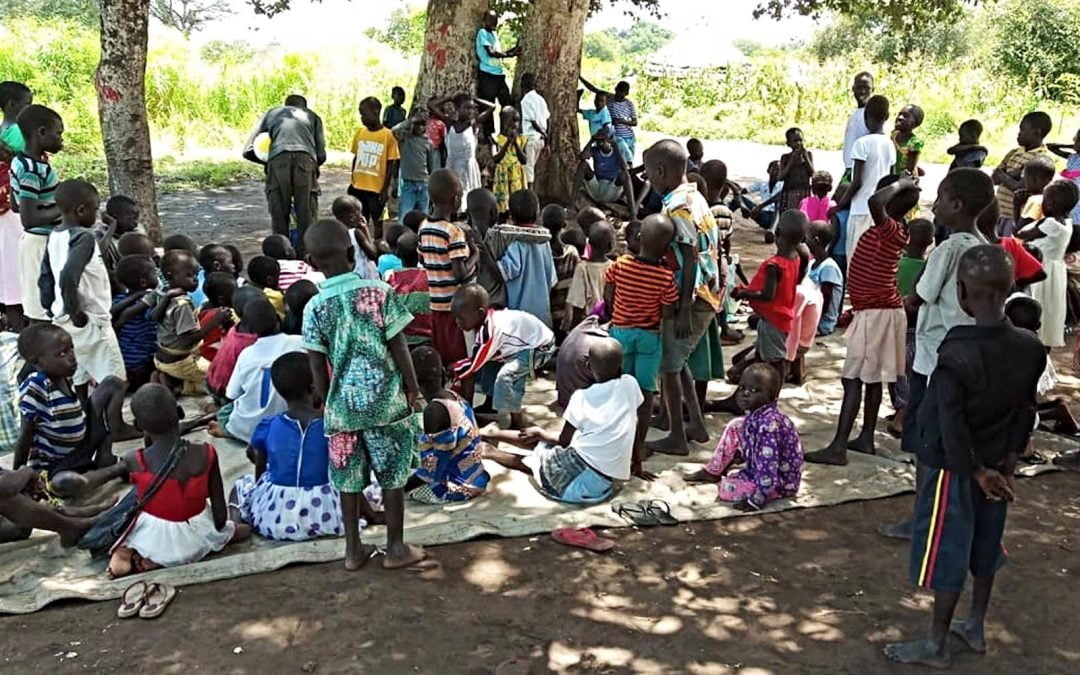Nearly 1,000 days – 951 to be exact.
That’s how long it has been since Edward Dima last saw his hometown of Kajo-Keji, South Sudan.
At 10 a.m. local time on Jan. 31, 2017, Dima left for Uganda, where he and his family have been living as refugees from the ongoing civil war in his home country.
Though he recently visited Juba (the nation’s capital) and Maban Country (a northern region bordering Sudan) – by plane, he noted, because it is unsafe to travel by car – he has not been able to return to his hometown since departing.
Dima serves as pastor of First Baptist Church in Kajo-Keji and as president of the Baptist Convention of South Sudan.
After speaking on camera with EthicsDaily.com staff about the situation in South Sudan during the Baptist World Alliance’s 2015 World Congress gathering in Durban, South Africa, Dima has stayed in touch with EthicsDaily.com via email and provided regular updates and insights regarding the situation in the east central African nation.
“All the [First Baptist] church members were dislodged from their home and others were killed because of hunger,” he told EthicsDaily.com via email on Aug. 30. “Others attempted to go back but ended up being killed.”
Most of the congregation’s members are now living in refugee camps in Uganda, a nation that is hosting nearly 800,000 South Sudanese refugees and experiencing strained resources and relationships, according to a late August Voice of America report.
“Those who stayed in South Sudan died of hunger, diseases,” Dima said, and they “lack education for their children and no basic supplies as well.”
The death toll resulting from the conflict is nearing 400,000 persons, according to the latest estimates.
Even those who fled to neighboring countries, like Uganda, struggle to find adequate provisions, particularly when it comes to education.
“Many children are not getting enough education,” Dima told EthicsDaily.com. “Many schools do not have support for teachers, lack stationaries, lack scholastic materials.”
“We tried as Baptists to start schools,” he lamented, “but [there was] no support.” Dima reported previously on the limited resources available for educational initiatives among refugee children.
Baptists and other faith groups “are trying to help the suffering people with food and non-food items, but [it] is hard because people were traumatized and many end up committing suicide,” he told EthicsDaily.com.
Dima regularly travels to the refugee camps in northern Uganda from Kampala, Uganda’s capital city, where he is currently living with his family.
Last week, he led a trip consisting of a Baptist medical group from Germany and a medical missions team from Dawson Memorial Baptist Church in Birmingham, Alabama, to minister to refugees in the camps.
Ben Hale, Dawson Memorial’s evangelism and missions pastor, told EthicsDaily.com via email that the congregation has been involved in mission work in what is now South Sudan since 2002, helping establish two schools and a farm, among other initiatives.
Hale shared an article written by Debbie Moss, Dawson Memorial’s minister of health and wellness, which explained that the congregation began sending medical mission teams annually to Kajo-Keji in 2009 and had formed a strong relationship with Dima and others in the community.
Moss received word in January 2017 that someone was trying to contact her from a refugee camp in Uganda. It was Edward Dima.
He was requesting help from Dawson Memorial, specifically for food, as international aid shipments were not reaching the camps at the time.
The congregation purchased more than 13,000 pounds of food and helped distribute it the week before Easter 2017 and then provided funding for refugees to buy land, seeds and tools to begin growing their own food.
Annual medical mission trips to the Ugandan refugee camps began in September 2017, with more than 700 patients being seen.
The latest trip took place last week, seeing more than 900 patients, and the next trip is already in the works for September 2019.
South Sudan is the world’s youngest nation, having officially secured independence from Sudan in 2011, after a six-year period of autonomy starting in 2005.
Tensions and intermittent conflicts soon arose, with the present conflict emerging in 2013 from a struggle for power between the nation’s president, Salva Kiir, and the vice president, Riek Machar.
Military forces chose sides, with The Sudan People’s Liberation Army (SPLA), also known as SPLA-IG (in government), loyal to Kiir, and the SPLM In Opposition (SPLM-IO), supporting Machar.
A peace agreement signed in September 2018 continues to hold, but tensions remains high and hopes dim.
A U.N. fact-finding mission expressed concerns in late August about limited progress in implementing the peace agreement.
Dima described the implementation as “too slow and dragging,” expressing concern that, despite his prayers for peace, “if nothing is … done, they might fight again.”
“I am requesting my readers to pray and support us,” Dima said. “Pray for peace, pray for the gospel to penetrate the hearts of South Sudan leaders and the whole nation. We are praying for them to come over to encourage us who are broken-hearted.”


